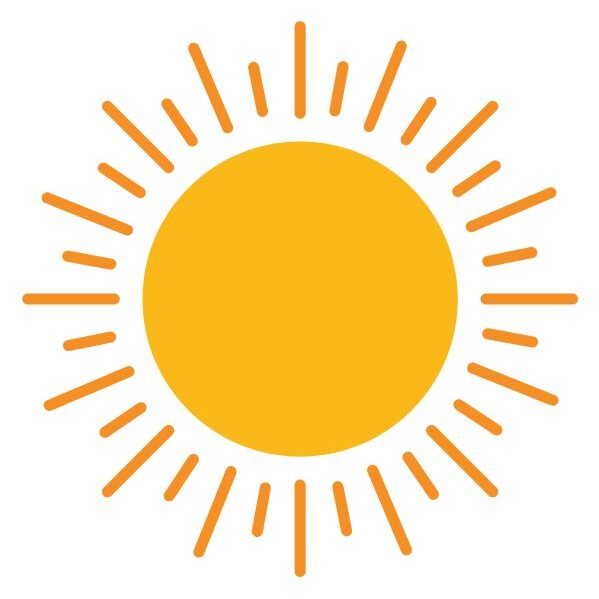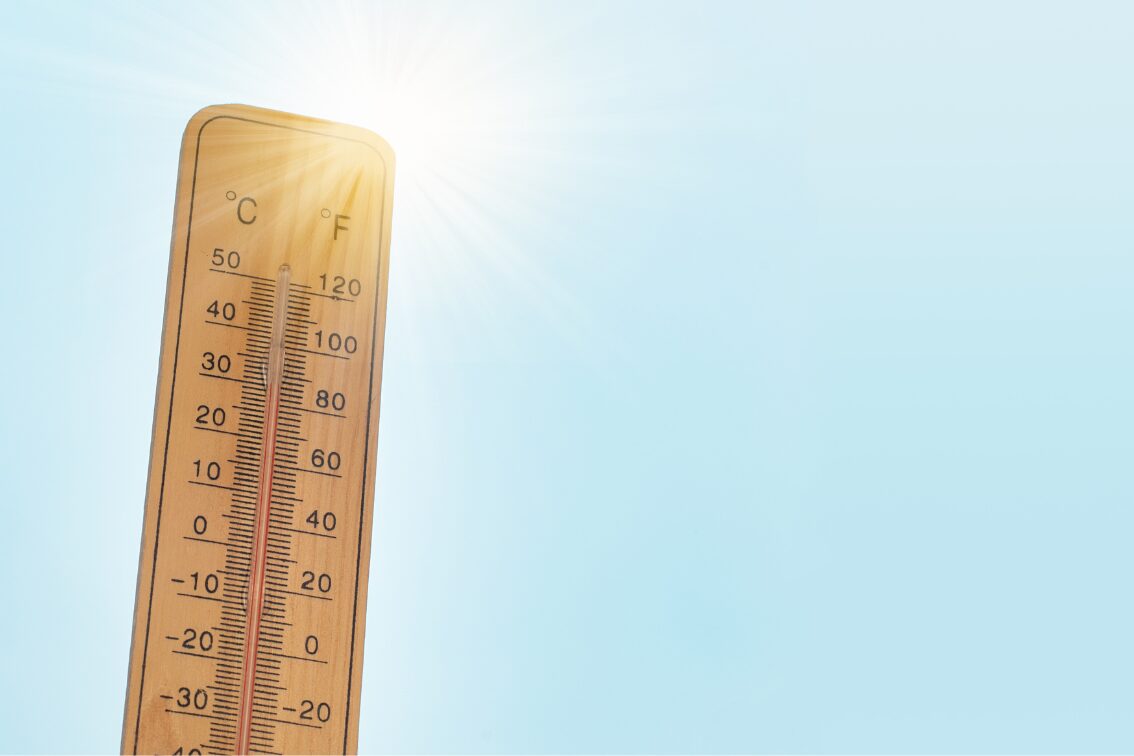*This post may contain affiliate links for which I earn commissions.*
Remember that sweltering summer when stepping outside felt like walking into an oven? Heatwaves are no joke! As temperatures soar, heatwaves become a common topic in weather reports. These extended periods of extreme heat can significantly impact our health, environment, and daily lives. Despite their prevalence, many myths and misconceptions about heatwaves persist. In this blog post, we’ll debunk some of these myths and provide facts to help you stay informed and safe.
Are Heatwaves Dangerous? Uncovering the Risks
Myth 1: Heatwaves are just uncomfortable, not dangerous.
Fact: Heatwaves can be deadly, causing heat exhaustion, heatstroke, and worsening chronic conditions like heart disease and respiratory problems. Vulnerable populations, including the elderly and those with preexisting health conditions, are particularly at risk. For example, in 2019, Europe faced an unprecedented heatwave. Cities like Paris and Madrid saw spikes in heat-related illnesses and deaths, highlighting the serious risks posed by extreme heat.
Heatwaves in Cold Climates: What You Need to Know
Myth 2: Heatwaves only happen in hot climates.
Fact: Heatwaves can occur in any climate, including cooler regions that are often unprepared for extreme heat. Recent heatwaves in Europe and Canada highlight this reality. In fact, these areas can be more vulnerable because their populations and infrastructures are not as accustomed to coping with high temperatures.
Staying Cool: More Than Just Drinking Water

Myth 3: Drinking water alone can prevent heat-related illness.
Fact: Hydration is crucial, but staying cool also involves seeking shade, wearing light clothing, and avoiding strenuous activities during peak heat. Fans, air conditioning, and cooling centers are also essential.
Nighttime Heat: The Hidden Danger
Myth 4: A heatwave means it’s hot all day and night.
Fact: Nighttime temperatures can also be dangerously high, preventing the body from recovering from daytime heat. This sustained exposure can lead to severe health issues. For instance, during the 2019 European heatwave, many people suffered from heat-related illnesses due to high nighttime temperatures that didn’t allow their bodies to cool down.
Nighttime Relief: Tips for Sleeping Comfortably During Hot Nights | Heat Wave Hacks
Fan or Foe? When Fans Fail
Myth 5: Fans are the best way to stay cool.
Fact: While fans increase air circulation, they can circulate hot air in extreme heat, offering little relief. Air conditioning, cool showers, and hydration are more effective in such cases. Did you know that placing a bowl of ice in front of a fan can create a cool breeze that’s more effective than the fan alone?
Year-Round Awareness: Heatwaves Aren’t Just a Summer Thing
Myth 6: Heatwaves are only a summer phenomenon.
Fact: Heatwaves can occur in other seasons, catching people off guard. Staying vigilant about weather patterns year-round is crucial. Spring and fall heatwaves, like those seen in some regions of the US, can be equally dangerous because people are often less prepared for extreme heat outside the summer months.
Unequal Suffering: Who’s Most Affected?

Myth 7: Everyone suffers equally during a heatwave.
Fact: The impact of heatwaves varies. Socioeconomic factors, access to resources, and underlying health conditions significantly affect how individuals are impacted. People living in urban areas, where concrete and asphalt amplify heat, often experience higher temperatures, a phenomenon known as the “urban heat island effect.” Additionally, those without access to air conditioning or cooling centers are more vulnerable to heat-related illnesses.
Debunking the Caffeine Dehydration Myth
Myth 8: Drinking coffee or tea dehydrates you.
Fact: Moderate consumption of caffeinated drinks does not significantly contribute to dehydration. The fluid content helps offset the mild diuretic effect. So, enjoy your morning coffee, but make sure to drink plenty of water throughout the day, especially during a heatwave.
When Fans Backfire
Myth 9: Electric fans always keep you cool.
Fact: Fans can make you feel hotter in extremely high temperatures by blowing hot air across your skin. In such cases, opt for air conditioning or cool showers. Also, placing a wet bandana on your neck or wrists can help lower your body temperature quickly.
The Best Cooling Gadgets for Surviving Extreme Heat | Heat Wave Hacks
Heat Safety for All Ages
Myth 10: You don’t need to worry about heat if you’re young and healthy.
Fact: Heat-related illnesses can affect anyone. Prolonged exposure to high temperatures can lead to heat exhaustion or heatstroke, regardless of age or health status. Even young athletes are at risk if they exercise during peak heat without taking proper precautions.
Heatwaves: More Than Just an Inconvenience

Myth 11: Heatwaves are just an inconvenience.
Fact: Heatwaves are deadly, causing severe health issues and straining public services and infrastructure. They are one of the leading causes of weather-related deaths worldwide.
Sunburn Isn’t Just for Hot Days
Myth 12: Sunburn only happens on hot days.
Fact: Sunburn can occur on any sunny day due to UV radiation, not temperature. Protect your skin with sunscreen, clothing, and shade.
Ultimate Guide to Choosing the Best Beach Tent or Sunshade | Heat Wave Hacks
The Cold Water Conundrum
Myth 13: Drinking ice-cold water is the best way to cool down.
Fact: Ice-cold water can cause stomach cramps. It’s better to drink cool or room-temperature water steadily and use external cooling methods.
Cracking the Window Myth

Myth 14: Cracking a window helps cool the house.
Fact: Cracking a window during a heatwave can let in more hot air. Keep windows and curtains closed, opening them only during cooler hours.
Exercise and Heat: A Risky Combination
Myth 15: Exercise is safe in the heat if you stay hydrated.
Fact: Hydration alone isn’t enough. High temperatures and humidity can overwhelm the body’s cooling mechanisms, leading to heat exhaustion or heatstroke. It’s best to exercise during cooler parts of the day or in an air-conditioned environment.
Beyond Air Conditioning: Other Cooling Methods
Myth 16: Air conditioning is the only way to stay cool.
Fact: There are several effective ways to stay cool, including using fans, cool showers, lightweight clothing, and staying hydrated. Additionally, spending time in shaded or cooler areas can help you avoid the worst of the heat.
Creative Hacks and Tips for Staying Cool Without Air Conditioning | Heat Wave Hacks
Recognizing All Heat-Related Illnesses
Myth 17: Only heatstroke is dangerous.
Fact: Other heat-related illnesses like heat exhaustion, heat cramps, and dehydration are also serious and can escalate quickly.
Humidity: The Hidden Heat Risk

Myth 18: Higher humidity means less risk of heat illness.
Fact: Higher humidity increases the risk of heat illness by interfering with the body’s ability to sweat and cool itself.
The New Normal: Frequent Heatwaves
Myth 19: Heatwaves are a rare occurrence.
Fact: Heatwaves are becoming more frequent and intense due to climate change. Preparing for heatwaves is essential.
How to Stay Cool at Summer Festivals and Outdoor Events | Heat Wave Hacks
Conclusion
Understanding the facts about heatwaves is crucial for staying safe during periods of extreme heat. By debunking common myths, we can better prepare ourselves and our communities for the challenges posed by heatwaves. Stay informed, stay cool, and look out for those who may be more vulnerable during these intense weather events. Awareness and preparedness are key to navigating our changing climate and mitigating the impacts of heatwaves.
How do you stay cool during a heatwave? Share your tips in the comments below!

